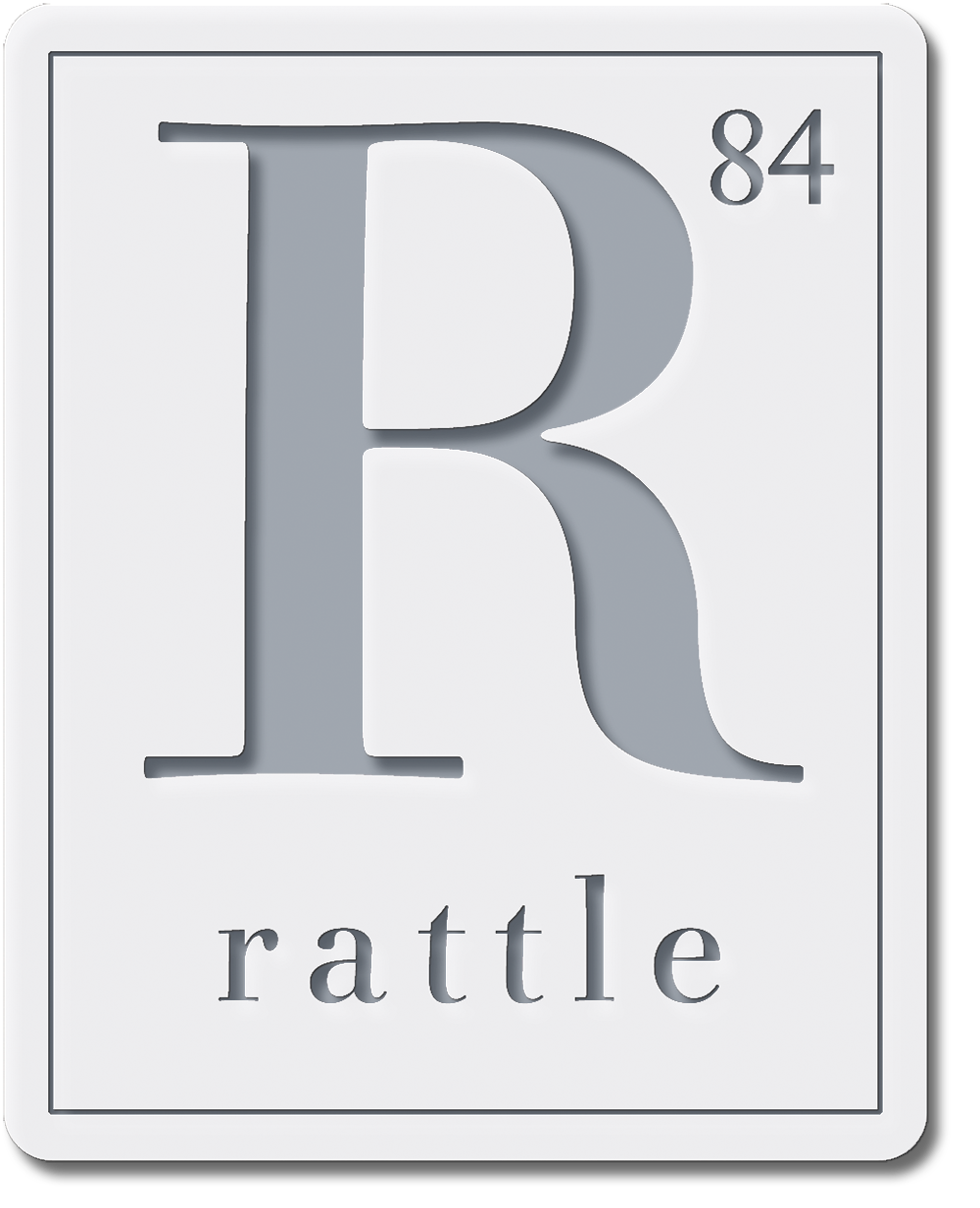Bill Christophersen
HOLE
I
When the toddler disappeared (the septic tank’s
countersunk manhole cover not quite centered
and so become a revolving door), the May
sun was drying the grass of the bed-and-breakfast’s
manicured front lawn. A gardener
was coaxing a power mower up the property’s
street-side incline, one hand on the throttle,
the other on the driving wheel’s black dish.
When the father disappeared (down the same hole,
self-preservation trumped by something else
more limbic still, some gut-level imperative
or sense that hell had got him by the balls,
no matter how he played it), the mother, alone
and shaking, screamed with her whole body.
The gardener jammed the stick in park and hove
his lumbering, sweating self from the metal seat.
Then the mother disappeared (belayed
by the gardener’s sausage fingers round her ankles,
arms flailing the stinking darkness; flailing
and groping, the acrid stench suffocating
as her terror of the epiphany that life,
into which we bring these ones we love,
can snatch them by the toe and eat them whole;
can leach their little hides, do what we will).
Then the child reappeared (hauled up bodily,
the mother, arms extended like a midwife’s,
seizing it in midair from the father,
who, plunging deep, had gone to work, feeling
past turds till hand touched skull, then tugged
the curled-up infant from the pissy muck
and raised it above his head, a living trophy―
delivered to its mother, then babe and mom delivered
by the puffing gardener, whose yells of “Help! Baby!”
brought a passing mom-and-stroller, hence clean
water, disinfectant wipes, cell phone and the steady
voice required to summon 911).
Below, the father, treading bilious sludge,
barked knuckles on cement, then struck a rung―
egress from that twilight zone of filth;
chimney to pure light, sun-drenched salvation.
And so the father reappeared (climbing
out of deeper shit than I or anyone
I know has ever been encompassed by).
One doesn’t think, they say, at times like this;
one reacts. One thinks all sorts of things: How deep?
Well? Cesspool? Caustic chemicals? Will I
land on him? Break his back? My back? Is he
dead already? Am I committing suicide?
The ambulance arrived in a minute-thirty.
Son and father had stomachs pumped, got meds,
caught colds, got better. All three wake up screaming
more often than most of us. The parents shower
way more than they need to. The two-year-old
climbs the walls at the mention of bath time but
otherwise is doing fine. Turns out babies
hold their breath instinctively under water.
II
One wants the tale to end there, and perhaps
it does, a centerpiece of family lore, a
miracle of love, bravery, a special
dispensation all three share going forward.
But perhaps the enormity of the episode,
like a dark star, warps the space around it,
and the debt of love incurred toward the father
smothers the wife, and later the child, in guilt.
Perhaps the father, a dozen or more years later,
watching his teenage son do reckless things,
thinks, “What right’s he got to pull this kind
of shit on me?” Or, seething at the wife’s
obiter dicta and bickering retorts,
thinks, “Why was it up to me to take the plunge?
Was my life more expendable than yours?”
Perhaps the boy, unable at last to abide
the horror of that day, its happy ending
notwithstanding, loses the knack for trust,
without which nothing much is ever ventured,
fought for, wrestled with, maintained in spite
of obstacles? Perhaps no foothold ever
fully persuades; no morning sun on green
lawn but signifies some nightmare’s mise-
en-scène; no darkness seems negotiable.
III
A miracle is deceptive. Isolated,
it can make all history seem foreordained,
as if the jeweled part stands for the whole
bloody mess, that far less scintillating
prospect. There’s the chance, of course, that life’s
a latticework, a series of intersecting
miracles or miracle plays whose characters
appear/disappear within the larger structure,
a glimpse of which we’re occasionally afforded:
no clockwork universe but one ably directed
by the playwright himself, who, understandably
perhaps, bends over backward to retain
his privacy, anonymity, invisibility,
though peering, now and then, from a wing to nod
or appearing, like Alfred Hitchcock, in a cameo―
as grandfather, gardener, deus ex machina.
A tempting proposition, this invisible
script, this hidden teleology
in which each of us plays an unwitting part.
But over and against it is the hole―
unspeakable; mephitic; defiling;
predatory, one almost wants to say;
lying there beneath resplendent grass
on which young couples and their babies play.
—from Rattle #40, Summer 2013
__________
Bill Christophersen: “‘Crossing the Bar’ and ‘Ozymandias’ floored me in ninth grade, and hearing Bill Zavatsky and Gregory Orr read when I was in college helped me realize poems weren’t made by gray-bearded deities. When I turned 23, the country band I was playing in dissolved, the girl I was seeing walked, and I was alone in eastern Long Island with winter coming on. It was write or start drinking, and I’m not a drinking man.”

